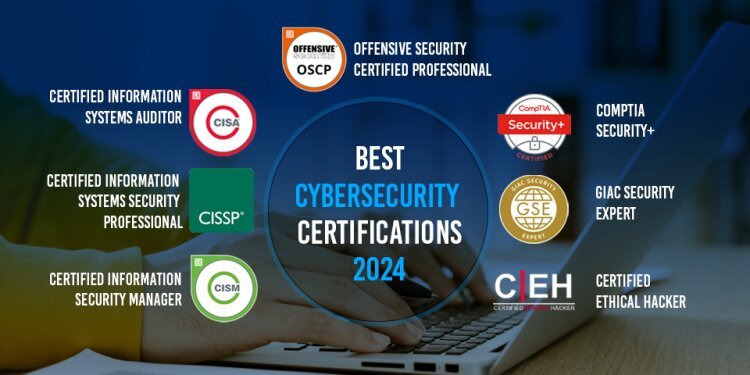
Navigating the World of Cybersecurity Certifications
Posted on February 7, 2024
In today’s digital age, where data breaches and cyber threats are on the rise, cybersecurity has become a critical focus for organizations worldwide. With the increasing demand for skilled professionals in this field, cybersecurity certifications have become essential for those looking to advance their careers or break into this growing industry. But with so many options available, how do you navigate the world of cybersecurity certification?
1. Understand the Different Types of Certifications
Cybersecurity certifications can be broadly categorized into three main types:
- Entry-Level Certifications: These are for individuals just starting in cybersecurity. They focus on the foundational knowledge and skills required to protect an organization’s systems.
- Examples: CompTIA Security+, Cisco’s CCNA Cyber Ops, and EC-Council’s CEH (Certified Ethical Hacker).
- Intermediate-Level Certifications: These certifications are for professionals who already have some experience in the field and wish to deepen their expertise in specific areas like network security or incident response.
- Examples: CompTIA Cybersecurity Analyst (CySA+), Certified Information Systems Security Professional (CISSP), and Certified Information Security Manager (CISM).
- Advanced-Level Certifications: These are for senior professionals looking to gain expertise in advanced concepts like penetration testing, forensics, or security management.
- Examples: Certified Information Systems Auditor (CISA), Certified Cloud Security Professional (CCSP), and Certified Expert Penetration Tester (CEPT).
2. Consider Your Career Goals
Before diving into certification, it’s essential to consider your long-term career goals in cybersecurity. Are you interested in network security? Incident response? Ethical hacking? Understanding your area of interest will help you choose the right certification that aligns with your aspirations.
3. Stay Up-to-Date
Cybersecurity is a fast-evolving field, with new threats and technologies emerging regularly. As a result, many certifications require you to earn Continuing Professional Education (CPE) credits to maintain their validity. This ensures that your skills and knowledge stay relevant and up to date.
4. Certification Providers and Resources
Some of the most respected certification bodies include:
- CompTIA: Offers a range of certifications from entry-level to advanced.
- (ISC)²: Known for certifications like CISSP and CCSP, focusing on information security and cloud security.
- EC-Council: Best known for its Certified Ethical Hacker (CEH) and Certified Network Defender (CND).
- ISACA: Offers certifications like CISA and CISM, focusing on auditing and security management.
5. Preparing for Cybersecurity Certifications
- Study Materials: Books, online courses, and video tutorials are excellent ways to prepare for certification exams.
- Practice Exams: Taking practice exams can help you gauge your understanding and familiarize yourself with the exam format.
- Hands-On Experience: Practical experience is invaluable. Set up home labs, participate in Capture the Flag (CTF) challenges, or volunteer for security projects to gain hands-on experience.
6. Cost vs. Benefit
While cybersecurity certifications can be expensive, they are often a worthwhile investment. The skills you gain from these certifications can lead to higher-paying roles and greater job security. However, it’s essential to weigh the cost of certification exams, study materials, and ongoing education against the potential return on investment in terms of salary and career advancement.
7. The Value of Networking
Don’t overlook the value of networking. Joining cybersecurity forums, LinkedIn groups, or attending cybersecurity conferences can help you stay updated on trends and connect with other professionals in the field. These connections can also open up new opportunities and offer insights into which certifications are most valuable in the job market.
By carefully considering your career goals, choosing the right certifications, and dedicating time to study and practical experience, you can successfully navigate the world of cybersecurity certification and build a strong foundation for a rewarding career in this critical industry.
